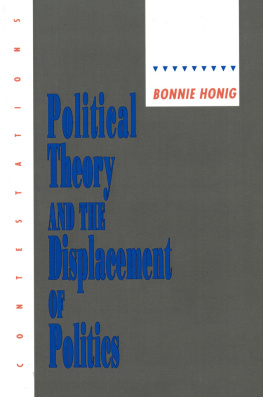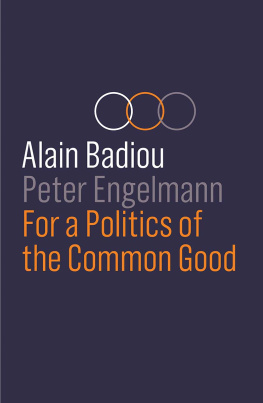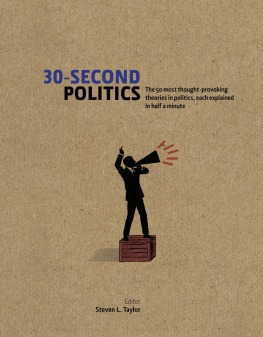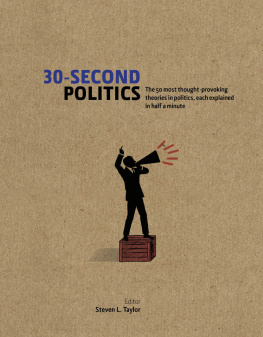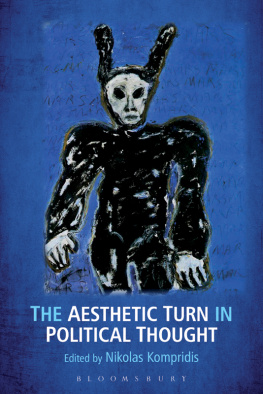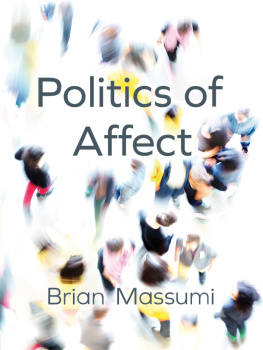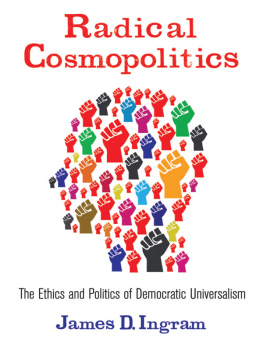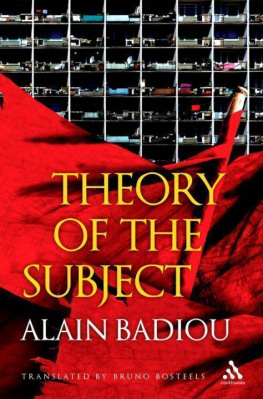Sergei Prozorov - Theory of the Political Subject: Void Universalism II
Here you can read online Sergei Prozorov - Theory of the Political Subject: Void Universalism II full text of the book (entire story) in english for free. Download pdf and epub, get meaning, cover and reviews about this ebook. year: 2013, publisher: Routledge, genre: Politics. Description of the work, (preface) as well as reviews are available. Best literature library LitArk.com created for fans of good reading and offers a wide selection of genres:
Romance novel
Science fiction
Adventure
Detective
Science
History
Home and family
Prose
Art
Politics
Computer
Non-fiction
Religion
Business
Children
Humor
Choose a favorite category and find really read worthwhile books. Enjoy immersion in the world of imagination, feel the emotions of the characters or learn something new for yourself, make an fascinating discovery.

- Book:Theory of the Political Subject: Void Universalism II
- Author:
- Publisher:Routledge
- Genre:
- Year:2013
- Rating:4 / 5
- Favourites:Add to favourites
- Your mark:
Theory of the Political Subject: Void Universalism II: summary, description and annotation
We offer to read an annotation, description, summary or preface (depends on what the author of the book "Theory of the Political Subject: Void Universalism II" wrote himself). If you haven't found the necessary information about the book — write in the comments, we will try to find it.
Together these two companion volumes develop an innovative theory of world politics, grounded in the reinterpretation of the concepts of world and politics from an ontological perspective.
Theory of the Political Subject continues the project of reconstruction of political universalism begun in Ontology of World Politics. Having redefined world politics in terms of the affirmation of the universal ontological axioms of freedom, equality and community in an infinite multiplicity of particular situations or worlds, in this book Prozorov focuses on the way this affirmation is actually practiced, analysing the conditions for the emergence within a world of the subject of its radical transformation. Drawing on the contemporary reassessment of the notion of the subject in continental political thought, particularly the work of Alain Badiou, Prozorov defines the political subject in terms of ones subtraction from the positive order of ones world, the weakening of ones particular identity that makes possible ones participation in the affirmation of the universal. The book proceeds with outlining the path of the political subject within its world, from the point of its inception to its confrontation with ethical, epistemic and other limits to its activity. This account of the subjective aspect of world politics also offers new and stimulating perspectives on such key issues of political theory as the relation of politics to human nature, the role of violence in politics and the conditioning of politics by philosophical or scientific knowledge.
Systematic and accessible, these works will be key reading for all students and scholars of political science and international relations.
Sergei Prozorov: author's other books
Who wrote Theory of the Political Subject: Void Universalism II? Find out the surname, the name of the author of the book and a list of all author's works by series.

